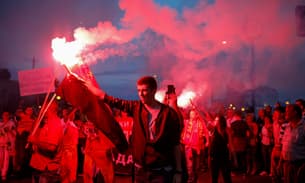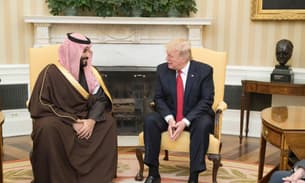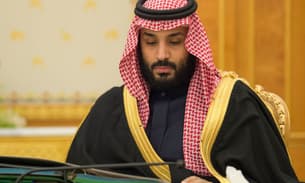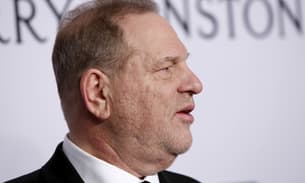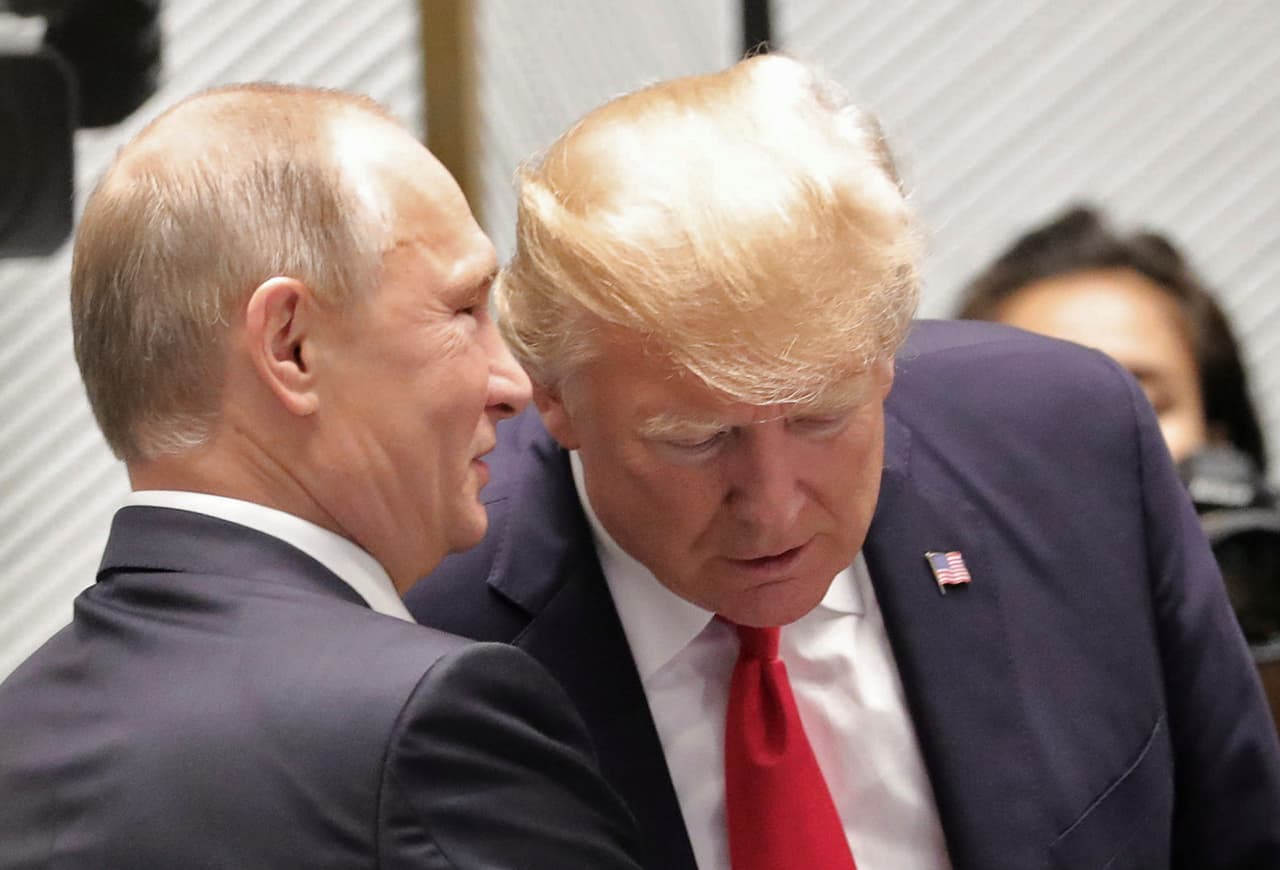
Inside the corporate investigations business
The corporate investigations industry is by its very nature a secretive business, but it has recently and reluctantly come out of the shadows.
Last year a private spy, Christopher Steele, was forced to flee his home, following the leak of a dossier he had compiled on President Donald Trump. The former MI6 Russia hand had started his own security firm, Orbis Intelligence and had compiled an account of collusion between the Kremlin and Trump’s presidential campaign. Trump has repeatedly denied any such collusion. Steele, for his part, was recently reported as saying that he believed 70-90% of what was in the dossier was accurate. Then, in early December 2017, the Intercept reported that President Trump is considering creating a global network of private spies, due to his much-vaunted distrust of the Central Intelligence Agency and the larger US intelligence network. The industry is in demand.
So the new revelations from private security firms C2I and Inkerman are yet more unwelcome attention on an industry which now wants to appear both professional and bland. The industry may want to present itself as just another service industry, much like marketing or public relations, offering services such as profiling potential directors for a new company, checking corporate supply chains for any rogue elements, or uncovering white collar fraud. However, it is, in truth, different. One key distinguishing factor is that corporate investigations firm are often staffed and run by former spies and veterans of special forces, even if they work alongside graduates, accountants and lawyers.
Some of the companies even have private military arms – a legacy of hoovering up contracts in post-invasion Iraq or protecting shipping against Somali pirate gangs. Other still have veterans of the nervous ‘90s in Russia, where blue chip businesses vied with mafia gangs for control of vast swathes of natural resources. It is an industry which could be said, quite literally, to have skeletons in its closet.
Make change possible
Investigative journalism is vital for democracy. Help us to expose injustice and spark change
Click here to support usDespite that, it is still a world that is less BBC spy series Spooks, more US legal series Suits. At drinks receptions in corporate law firms or arcane legal panels in former Soviet states, you will often find the directors of these companies mixing with partners in magic circle law firms, private bankers and fixers.
Their clients are high net worth individuals who might be the victims of fraud, or high net worth individuals who don’t want anyone finding out how they came by their loot. They could be vulnerable to kidnap, in which case some firms can offer individual tracking devices to potential targets. They might be legitimate businesses from corrupt countries entrapped in vexatious litigation (the common provision for many Russian business deals to be settled by UK law has been a huge boon to the industry) or western businesses looking for help accessing foreign markets. Typical clients range from banks who have simply lent to the wrong people, to vulture funds looking to find what’s left of a country’s assets, or even activist investors looking for dirt on a difficult board member.
Some of these private spy companies have turnovers in billions of dollars. They often have dull names and bland offices but this increasingly “boring industry” is also on the frontline of globalisation. As more Western companies and institutions come into contact with businesses from countries where attitudes to corporate governance are decidedly lax, the need to know just who you are dealing with has become ever more acute.
Whether an investigations company reaches for the more enlightened end of this market often depends on each firm’s partners and how much they need to increase their bottom line. Just as the recent scandal with Bell Pottinger in South Africa turned the spotlight on “reputation management”, it is now the investigations industry which is being scrutinised. Below is an account of some of its top names.
The modern corporate investigations industry was effectively founded in the 1970s by a lawyer Jules Kroll, who identified a need for investigations into white collar crime that the police were unwilling or unable to pursue. Starting off in the world of litigation in New York, Kroll set the tone for the types of investigation which could be undertaken within the private sector.

The key piece of legislation for Kroll was the Foreign Corrupt Practices Act of 1977. This placed the onus on US firms to check that their foreign business partners were not engaging in illegal behaviour. Business boomed and by the 1990’s Kroll was conducting high profile investigations worldwide. Notable successes in the early 90’s include uncovering how Saddam Hussein personally benefitted from Iraq’s oil wealth as well as tracking down the fortune of Ferdinand and Imelda Marcos.
With offices in the corruption hotspots of Latin America, as well as in Russia and the Far East, Kroll remains the market leader in the industry, blending investigations into state corruption with more prosaic projects. Prior to Weinstein, the ones which made the headlines included an investigation into Sir Alex Ferguson on behalf of Irish tycoon JP Magnier, while another investigation saw Kroll working among the denizens of FIFA’s executive committee as various members used their financial clout to try and bring down rivals on corruption charges.
Among this roster of blue chip clients and other types, it’s not hard to see how Harvey Weinstein crept in. Kroll had become an expensive business and such clients were useful for keeping profits ticking over. In 2004 Jules Kroll sold his company and his name for a hefty $1.9 billion to insurance provider Marsh & McLennan. The Kroll family looked as if they might stage a buyback in 2010 but Kroll was again sold on to Altegrity, a company specialising in the evaluation of risks and their mitigation and minimisation, for $1.13 billion. Instead Jules Kroll and his son Jeremy founded their own firm K2.

K2 is the legacy business from Kroll. It is run by Jeremy Kroll, the son of Kroll’s founder, although 76 year old Jules is also involved. K2 has become one of the leaders in modernising the investigations industry. The firm now offers a rating agency for the bond markets similar to Fitch or Standard and Poor’s, and was one of the first to spot the market for cybersecurity services, teaming up with technology firm, Palantir.
Given the firm’s connections and the increasingly high profile of the investigations industry, K2 was able to recruit prominent names to its board, including a former head of the FBI’s cybercrime division, Austin Berglas, the former chairman of the US Joint Chiefs of Staff, Admiral Mike Mullen, and the lead prosecutor in the Bernie Madoff fraud, Julian Moore. The company has carried out high profile investigations including one into carbon credits – the ephemeral nature of these coupons making them perfect for carousel frauds – as well as investigations into the US advertising industry and recovering assets for the Madoff Bankruptcy Trustees.
That K2, with its roster of names and clients, was later caught out in one of the more egregious examples of low dealing in the corporate investigations industry illustrates the fine line these firms can sometimes tread. Last December it was reported that K2 had hired a documentary film producer to pose as an anti-asbestos activist to infiltrate the movement. The toxic substance, white asbestos, has been banned in the UK and EU since 1999. Asbestos campaigners are pushing for a worldwide ban of the substance. K2 has argued that it has merely passed information to its client, which wanted to understand the anti-asbestos campaign.

One of the more secretive firms within the corporate investigations world, Hakluyt, was also caught out using exactly the same technique as K2, infiltration. With “shoulder-length hair tumbling over the collar of a leather jacket and clutching a video camera”, a supposed filmmaker was paid by the firm to infiltrate green groups on behalf of oil companies. The Sunday Times revealed that Greenpeace was a key target because they were looking to expand their campaign against BP’s drilling in the North Atlantic and targeting Shell in Nigeria. “The bastard was good, I have to admit” said a Greenpeace spokesperson, after confirming they were forced to shelve their planned action against BP. BP and Shell say they were unaware of the techniques used by Hakluyt.
Hakluyt is known as a retirement home for ex-MI6 officers, but it now also recruits from the worlds of management consultancy and banking. The company was founded by Fitzroy MacLean, a legendary MI6 figure who had witnessed Stalin’s show trials and fought with Tito’s partisans during the Second World War. The board also included MI6’s liaisons with British businesses and oil companies, which helps explain its roster of impressive clients.
Hakluyt’s style appears to be much more in the mould of the Christopher Steele dossier. Clients pay for pages of well-sourced prose from Hakluyt’s contacts across the globe. One such contact was famously Neil Heywood, a British businessman who had started to work as a fixer for China’s increasingly wealthy elite. One of his clients was the wife of Bo Xilai, at the time the hot tip to make it all the way to the Chinese presidency. Instead Heywood was poisoned and Bo Xilai and his wife were both imprisoned.
Hakluyt seems to enjoy playing up to its secretive image. For years the company’s website was simply a business card stating the company’s name while its offices in Mayfair are known by insiders for its comfortable chairs, fireplaces and Gurkha security guards.
Control Risks represents what might be seen as the private security arm of this sector. The firm was prominent in post-invasion Iraq, protecting British diplomats and providing daily risk assessments, earning £112 million in three years for its work with the FCO alone.

Founded by former SAS officers in the mercenary boom of the 1970s, Control Risks has become a market leader in the world of political risk consultancy. Control Risks has a permanently staffed control room, its so-called Global Security Centre, based at the Control Risks London headquarters. It has a giant screen, offering a real-time view of any unfolding security situation.
The company is now one of the largest employers in the industry and has dozens of offices across the globe. Their security specialism has dovetailed neatly into offering clients advice on doing business in unusual places and the company employs teams of analysts, many of whom are taken from the development and charitable sector, to utilise their first-hand knowledge of these countries.
As with similar firms, Control Risks hasn’t neglected its investigation arm which has occasionally brought it more scrutiny. The firm was cited in the investigation of Nigerian activist Dotun Oloko who had blown the whistle on a private equity company partially funded by the UK’s Department of International Development (Dfid). The department then sent the information to the company. It then chose to employ Control Risks to investigate Oloko, rather than the alleged wrongdoing in their own company.
Kate and Gerry McCann also hired the firm’s operatives to assist in the hunt for their daughter in Morocco and Spain, angering Portuguese police and judiciary.
 An image of the London headquarters of Diligence
via Shutterstock
An image of the London headquarters of Diligence
via Shutterstock
If Hakluyt represents the Spooks end of the investigations trade, then Diligence is more Hustle. Set up by former members of the Special Boat Service and the CIA, the firm’s early days took on the more adventurous side of the industry. It has major offices in London and New York.
Russian oligarch Oleg Deripaska hired them to carry out corporate intelligence gathering, lobbying and support in providing a ‘due diligence’ report to the World Bank.
Diligence hit the headlines in 2007, when leaked documents revealed the company’s boss had posed as a serving MI6 officer to convince an accountant to hand over an audit he had completed on a Bermuda-registered investment fund. Over drinks the young accountant was convinced to hand over the documents in the interests of what he thought was national security.
“That was the correct audit and it saved our client two billion dollars”, says one Diligence manager, of the so-called Project Yucca. The accountant, who was completely innocent of any wrongdoing, was given a Rolex watch as a thank-you present. Diligence pointed out their investigation had proved the fund was being used as a money laundering vehicle by a Russian minister and denied any wrongdoing.
Since then the firm has concentrated on big ticket investigations and has attracted people such as former Conservative leader Michael Howard to serve on its board, who served as its European chairman.
Recently Diligence has featured prominently in Russian money laundering investigations in London’s Commercial Courts. The company helped to crack what currently stands as the largest fraud to be heard in the UK courts – Mukhtar Ablyazov’s siphoning of $4 billion from his own Kazakh bank.
Diligence, more recently, helped to reveal that a Russian businessman, Sergei Pugachev, known as Putin’s banker, had also taken $2 billion out of his own collapsing bank. Diligence was criticised for putting tracking devices on Mr Pugachev’s Bentley and Rolls Royce. After he absconded Pugachev claimed he had mistaken them for explosive devices. Both Ablyazov and Pugachev have fled the country and been sentenced to years in prison for contempt of court.
Main picture, of US President Donald Trump with the Russian President, Vladimir Putin, via Sputnik News/Reuters

